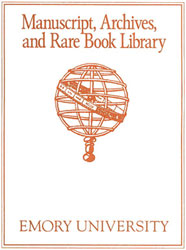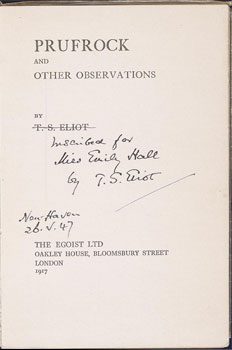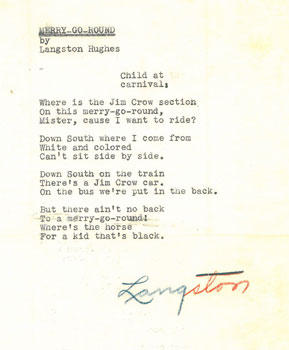 MARBL is staffed by an eclectic group of people who are knowledgeable, friendly and witty lovers of special collections. Periodically, they'll introduce themselves to you here on the blog by telling you how they got into the world of manuscripts, archives and rare books, and what they love most within MARBL's collections.
MARBL is staffed by an eclectic group of people who are knowledgeable, friendly and witty lovers of special collections. Periodically, they'll introduce themselves to you here on the blog by telling you how they got into the world of manuscripts, archives and rare books, and what they love most within MARBL's collections.
by Christeene Fraser, Office Manager, MARBL
Some places find you.
As an impoverished undergraduate living in New York City in the fall of 2003, I often found myself spending hours on end in one of the few places that freely offered beauty, learning, and repose to anyone: the New York Public Library. Under the frescoed ceiling of the Rose Main Reading Room, I studied for an anticipated career in medicine and rewarded my efforts with frequent breaks to draft poems or sketch portraits of fellow patrons in my notebook.

Prufrock and Other Observations,
1st Edition, 1917, by T.S. Eliot
inscribed to Miss Emily Hale
On one afternoon, I ventured out from the reading room and wandered down a hallway of glass-walled rooms where the rare map collections were housed. From the corridor I watched as white-gloved researchers handled delicate pieces of paper with the same joy and tender care of a mother bathing her infant. At the time I had no concept at all of special collections, the research role of primary records, or the qualifications needed to access such things. But that day made a lasting impression on my young mind: I wanted to be one of those people on the other side of the glass.
Seven years, a degree in English, and one career switch later—I got my opportunity. MARBL found me.
I came to the Robert W. Woodruff Library as a newly-minted graduate student on a class assignment to interview a librarian working in a position related to my future area of specialization. Still unsure of my career path, I sought out the special collections department largely on whim, anecdotal experiences of Emory's large and lovely campus, and my own lingering nostalgia for the NYPL. As fate would have it, I interviewed David Faulds, MARBL's rare book librarian and cataloger. I could not have anticipated how formative that class assignment would be over the course of my life as I grew into my profession and myself.

Merry-Go-Round, poem, undated,
Langston Hughes
I joined the MARBL team in 2010, and every day I marvel at collections and people that I feel privileged to work with. I am continually renewed and inspired by the “wow factor” of what we do and have in our holdings. As a poet and devout T.S. Eliot fan, it simply doesn't get any better than holding a first edition of Eliot's Prufrock and Other Observations inscribed, chastely, from Eliot to his first love and would-be wife Emily Hale; or an original typescript of a Langston Hughes poem; or one of several illustrated Ted Berrigan notebooks; or a first edition of Sylvia Plath's Ariel, owned and carefully annotated by friend and fellow poet Anne Sexton. Being in proximity to these things feels like kismet or a kind of magic that originated for me as an adolescent memorizing the lines of Plath's “Daddy” or Hughes's “I, Too, Sing America.”
As a librarian, it doesn't get any better than witnessing “wow moments” happening in the research room as scholars, students, and the public alike make connections between their own passions and archival material—bringing them ever closer to a finished dissertation, a published work, more nuanced undergraduate research skills, or a precious bit of family history. Working at MARBL reminds me continually that what we do here is important and necessary not only in preserving these rare treasures for future generations, but also in encouraging imagination, the mind, and the future of intellectual discourse.
